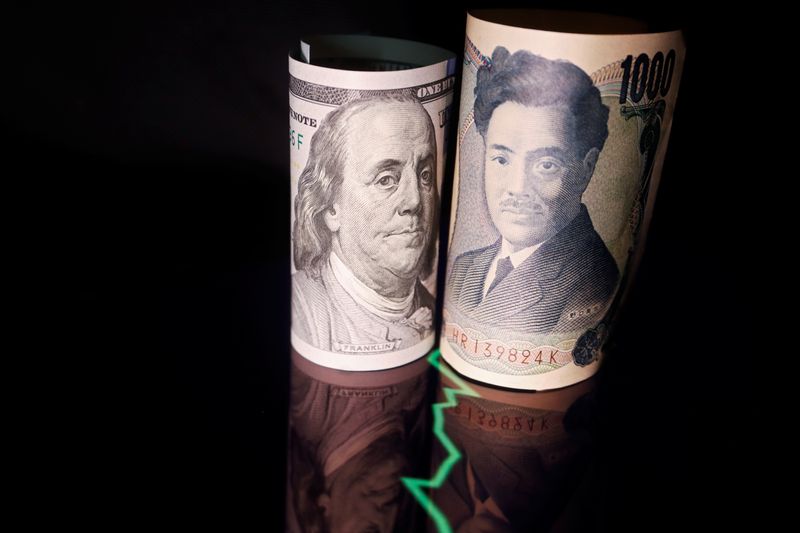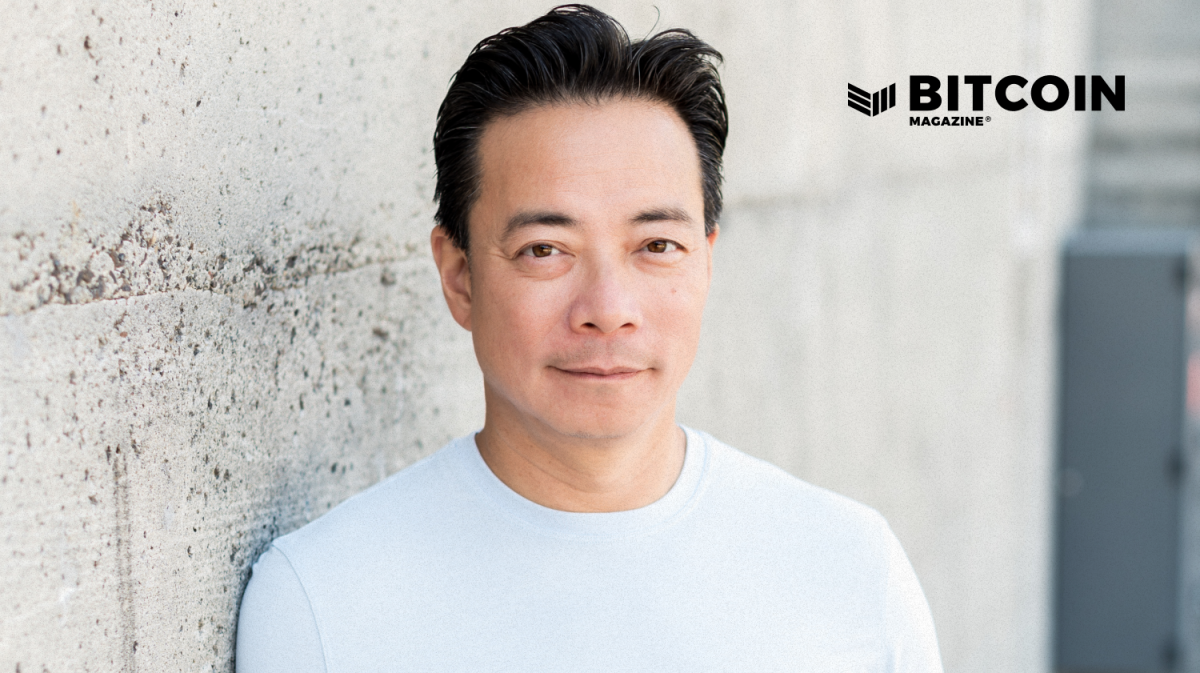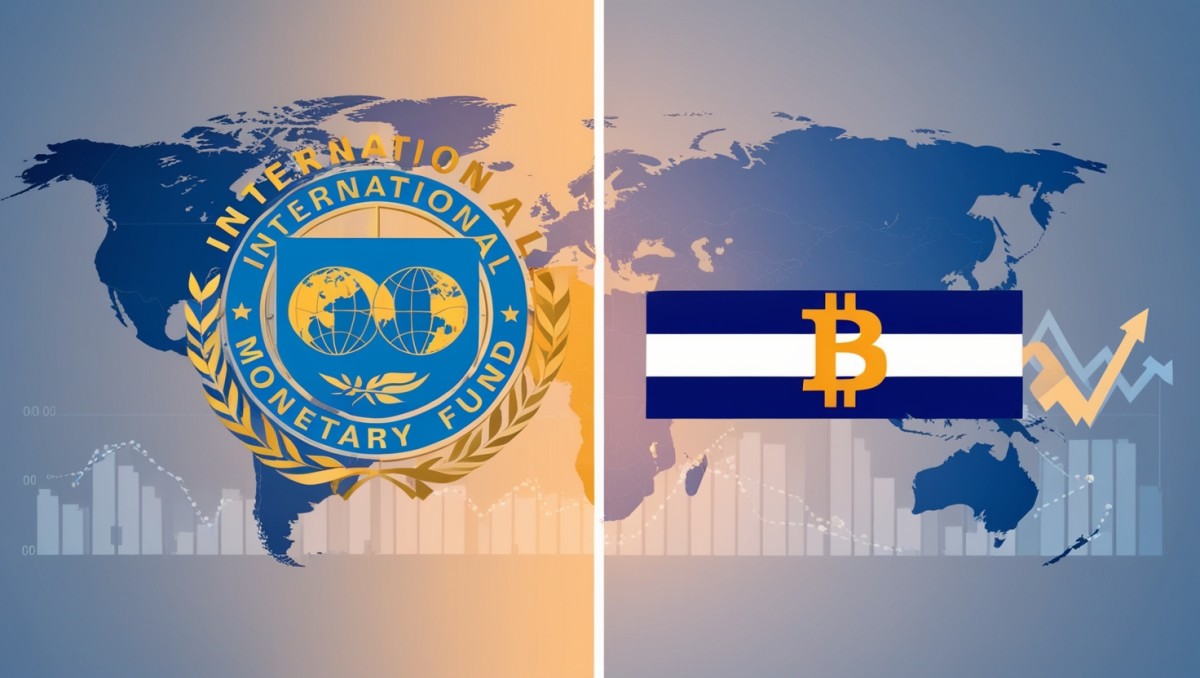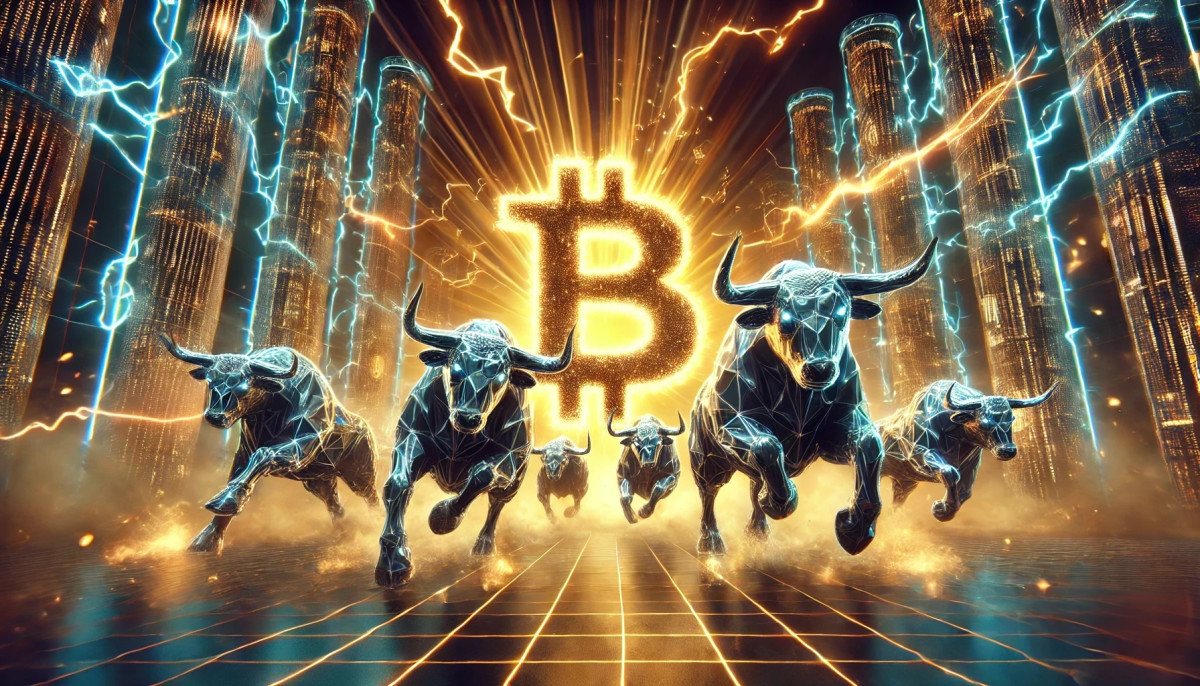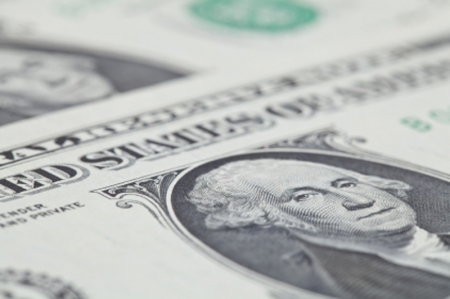Month: December 2024
Asia FX fragile with dollar upbeat ahead of PCE data; yen hits 5-mth low
Post Content
Dollar strengthens as market digests Fed’s hawkish cut
Post Content
Bitcoin Investors Are Now Up $67,000 On Average – And This Is Just The Start
According to Whale Alert, the average profit per BTC is at an all-time high of $67,088, at the time of writing.
“The Potential Profit per Token graph shows the potential profit that holders could make per token if they sold at a specific time,” Whale Alert’s website explains. Whale Alert has further calculations on this metric that can be found here.
To put this in perspective, this is more than the average American salary in 2024, which is $62,027. Imagine watching your savings grow and outperform your own yearly salary just for owning one bitcoin.
Every day, you trade hours of your life at work in exchange for money ( fiat for most). You consistently work harder and harder for that currency that is always depreciating in purchasing power, causing you to work longer hours to make up for it.
But bitcoin flips that dynamic on its head. With bitcoin, you are working (trading your time in exchange for money) and then watching that money grow in value as opposed to losing value.
People can then utilize that extra purchasing power bitcoin affords them to buy a home or car, afford university tuition, work less and/or spend more time with their family, etc. Your options for how you want to spend your time and money open up a lot more as a result of buying and holding bitcoin, and, to me, that is true financial freedom.
This is just another reason why using bitcoin as a savings vehicle is so important. It allows people become financially free and secure their future.
And this is just the beginning. Over time, bitcoin is poised to rise even higher than its current $100,000 price tag, giving investors the opportunity to increase their purchasing power even further and to therefore let them have more time to follow their passions and interests.
And all you have to do is bitcoin consistently, secure it, and HODL. Even if you aren’t holding a whole bitcoin, you’re still benefitting the dynamic of its improving your purchasing power over time and the more you can add to your stack, the more this will be the case.
Every person on the planet can now create their own bitcoin reserve, watch it grow, and choose how they want to spend the time they’ve freed up for themselves.
This article is a Take. Opinions expressed are entirely the author’s and do not necessarily reflect those of BTC Inc or Bitcoin Magazine.
Bukele Is The President of El Salvador, Not Bitcoin
As a condition of a new IMF loan package, President Bukele of El Salvador has had to concede three aspects of the Bitcoin Law passed in 2021:
A legal tender mandate requiring businesses to accept BitcoinShutting down Chivo, the state run wallet and on/off ramp serviceNo longer accepting tax payments in bitcoin
Ultimately everything except the last one is a positive change. Legal tender laws are ultimately coercive, and in my opinion shouldn’t exist. Chivo was a buggy mess, and alternatives exist such as Blink. The only negative (arguably), is the state no longer accepting bitcoin for tax payments.
People are losing their minds on Twitter over these changes, framing things as Bukele selling out, showing himself not to be a Bitcoiner, etc. There is a lot of people demonstrating an attitude that shows they feel misled, or betrayed.
Well here is a wake up call. Bukele was never going to be first and foremost a champion of Bitcoin above all else. He is the leader of a nation of around six million people. That was always going to be his first priority. If it wasn’t, he would be a terrible leader.
El Salvador is a country plagued by poverty, previously by violent organized crime. It was the murder capital of the world. Infrastructure was decaying and dysfunctional, people could not participate in the economy without paying protection money to violent gangs like MS-13. Massive amounts of the population had moved abroad to escape these things.
Bitcoin is nothing but a tool, one among many, for Bukele to deal with these problems. And that’s all it should be to the leader of a nation. Bukele’s reason for being in power isn’t to pump our bags, or to advance the cause of Bitcoin, it is to help the Salvadoran people.
When Bitcoin isn’t the best way to do that, he should acknowledge that. When deprioritizing Bitcoin is what is in the best interest of his people, he should do that. Regardless of how you feel about governments, or nation states, that is the job of a leader. To look after the best interests of his people.
That is what he is doing here, and anyone who would expect him to do otherwise is deluded and narcissistic. Bukele is not the President of Bitcoin, he is the President of El Salvador. The Salvadoran people are who he is accountable to, not a bunch of clowns on the internet.
This article is a Take. Opinions expressed are entirely the author’s and do not necessarily reflect those of BTC Inc or Bitcoin Magazine.
Foundation Introduces Passport Prime: Bitcoin Wallet And Data Security Device
On Wednesday, December 19, 2024, Foundation announced the release of its newest device, the Passport Prime.
Introducing Passport Prime – Your Personal Security Platform!
We’re thrilled to present Passport Prime, the world’s first personal security platform designed to secure your Bitcoin and your entire digital life.
Think: A Swiss Army Knife for your online security. pic.twitter.com/3HH2eG7vhU
— FOUNDATION (@FOUNDATIONdvcs) December 18, 2024
The device offers a broad range of features that not only help users secure the keys to their bitcoin but other digital information, as well.
Features
For starters, the Passport Prime offers the same bitcoin wallet capabilities as the company’s second generation Passport device, including multisig functionality and temporary seed phrases.
Beyond Bitcoin-related security, the Passport Prime also helps you to store other sensitive digital data.
Its 2FA Codes app lets users store 2FA codes offline, while its Security Keys app serves as a replacement for Yubikeys and allows users to create multiple security keys for use with NFC or USB.
What is more, the device offers an encrypted flash drive. Users can store up to 50 GB of data on the device. And as a means to keep your data private, the Airlock feature in the File Browser app lets users only access selected files when the device is plugged into a phone or computer.
The device also has its own custom operating system — KeyOS — which enables apps to run in their own sandboxes while the OS manages permissions.
Pushing The Hardware Wallet Industry Forward
Earlier this year, Foundation’s co-founder and CEO told Bitcoin Magazine he was looking to create the iPhone of Bitcoin hardware. The Passport Prime is the closest Foundation has come to this ideal yet.
“The hardware wallet industry has been coasting for years, failing to deliver any meaningful innovation and unable to respond to digital assets’ rapidly evolving utility and use cases,” said Zach Herbert, co-founder and CEO of Foundation in a press release.
“Wallets have become crypto’s weakest link: they are difficult to onboard to, complex to use, and increasingly insecure for a range of modern blockchain transactions,” he added.
“Passport Prime is the first device of its kind, a Personal Security Platform that’s fit for the future decentralized economy, making it simple to safeguard all your private keys in one offline device, and sign every kind of transaction or contract with complete peace of mind.”
Third-Party Apps Welcome
By approximately mid-2025, developers will be able to build third-party apps that will run on KeyOS. In other words, developers will be able to list their own apps in Foundation’s App Catalogue.
The first of these third-party apps will be produced by Cake Wallet and will enable users to more privately transact using Bitcoin, Monero and other cryptocurrencies.
Dynamic, Yet Simple and Secure
Foundation claims that setting up and using the Passport Prime will be easy, despite its various functionalities.
Users can set the device up using Envoy, Foundation’s native app that provides guidance for the set up process and that connects to the device via QuantamLink Bluetooth.
QuantamLink Bluetooth is enabled by a dedicated Bluetooth chip embedded in the Passport Prime that can only send and receive messages that are already encrypted using quantum-resistance technology.
Users can also back up their seed via a 2-of-3 Shamir Secret Sharing configuration splits the seed into three pieces — two stored on physical cards and one stored in the Envoy mobile app.
Details
The device will retail for $299 and ship by Q2 2025.
The device comes in two different colors — Arctic Copper and Midnight Bronze — and it’s both completely open-source and manufactured in the United States.
Learn more about the product here.
Worldcoin must delete all iris scan data, watchdog says
Post Content
Vancouver’s Mayor Shares His Pro-Bitcoin Vision
Vancouver’s Mayor, Ken Sim, is a genuine Bitcoin enthusiast who’s doing his part to get Vancouver’s city council as well as its citizens to see what he sees when it comes to Bitcoin.
And his efforts are starting to bear fruit.
On December 11, 2024, the Vancouver City Council greenlit a motion Mayor Sim prepared to start making Vancouver a more Bitcoin-friendly city.
The motion directs city staff to explore the ideas of Vancouver establishing a strategic bitcoin reserve as well as accepting taxes and city fees in bitcoin.
In my conversation with Mayor Sim, we discussed the passing of this motion as well as some of his deeper philosophical thoughts about Bitcoin.
We also touched on what Bitcoin adoption in Vancouver would look like in a perfect world, his own journey down the proverbial Bitcoin rabbit hole and why Bitcoin can bring financial hope to the citizens of Vancouver at a point in time when many are struggling to make ends meet.
The Vancouver City Council recently passed your motion to make Vancouver a more Bitcoin-friendly city.
On a personal level, though, if you could wave a magic wand and enable whatever level of Bitcoin adoption you see fit in Vancouver, what would that look like?
I’ve got to give you a caveat here. These are my own personal views. We have a pretty incredible team at the City of Vancouver, and they’ve been tasked to explore. So, it’s not as if I can really influence the team and tell them “You have to do this and that.”
In a perfect world, the first thing we would do is add to a strategic reserve. The second thing would be allowing people to transact with bitcoin without triggering capital gains tax events and to accept payments in the form of bitcoin. Tax regulation across not just Canada, but in the U.S. and a lot of other jurisdictions, still hasn’t caught up, so every time you transact with bitcoin, there’s a capital gains tax fee, which is very cumbersome.
The third thing is that we start the conversation and we bust the myths around narratives like Bitcoin is bad for the environment. That’s all hogwash, right? Bitcoin is actually going to help us save the environment.
Plus, it provides us with an immutable record and it actually adds to a level of transparency we’ve never seen in the history of humankind. Having that incorporated into our systems would be great.
You spoke about this process of educating people about Bitcoin on Natalie Brunell’s show. You said you “shower them with love and then you hit them with facts.” Can you give an example of what this looks like?
There’s a lot of resistance with Bitcoin, especially as it pertains to its perceived effects on the environment. People hear this narrative that it’s bad for the environment, and it’s like, “Well, wait a second…”
I’m an environmentalist, and I know that if you force organizations across the planet to do stuff that they aren’t incentivized to do, nothing’s going to happen. Whereas if you incentivize them — if you build in a reward system — it’s amazing.
So, what do we know? Well, we flare natural gas as a by-product of oil production, and if we actually capture that and repurpose it for Bitcoin mining, it is actually good for the environment. Same with capturing methane that seeps from the ground.
Also, with alternative or green energy sources, be it wind power or solar power, where the economics often don’t pan out to build these projects, you provide someone with a guaranteed customer in the form of Bitcoin miners, and the economics work and these things get built. So, it’s net positive for the environment.
There’s also this false narrative that nefarious things happen with Bitcoin. That’s garbage, right? Cash is untraceable. With Bitcoin, we’re talking about an immutable record where you can see every single transaction since the beginning of time and you can catch people at the on and off ramps.
Some of the narratives are actually the complete opposite of reality, and so we have to counter these narratives.
Based on my experience, it’s easy to teach someone something, while it’s a lot harder for people to unlearn, and we are in the process of helping people unlearn what they’ve learned.
You have referred to Bitcoin as the greatest invention in human history. Could you expand on that?
Our money is broken. People can’t use it to store their energy into the future. We’re on this rinse and repeat cycle. In Ray Dalio’s book The Changing World Order, he talks about the rise and fall of the Dutch empire, the rise and fall of the British empire, the rise and, as he puts it, fall of the U.S. empire. If you agree with Dalio’s perspective, the point is that the money’s broken.
We do not have a reserve currency that’s ever lasted. We keep repeating history. But Bitcoin changes all that. As we all know, you can’t mess with it, and you can’t manipulate it. It’s a game-changer and when we finally get onto the bitcoin standard — I think it’s a matter of when, not if — it’s going to change how humans interact with each other and how nation states evolve.
You just cited one of Ray Dalio’s books, and I’ve heard you discuss how you’ve also read books like The Bitcoin Standard and Layered Money. You’re also a friend of Jeff Booth’s. With all the reading you’ve done and the conversations you’ve had with Jeff, did you end up having a lightbulb moment with Bitcoin or was it more of a gradual learning process?
Well, I had the opposite of the lightbulb moment when my son Mitchell came up to me and said “Dad, I want to buy bitcoin.” And I was like, “You touch that shit, and I’m going to punch you in the throat.” Obviously, I wasn’t going to do that.
Then, I started seeing more of it and had conversations with Jeff. So, I started to look into it, read a bunch about it and went to a couple of conferences. My journey was very similar to a lot of other people’s. I was completely against it and then I warmed up to it and eventually became an evangelist.
I can’t point to any one point where it was like, “Wow, there you go” and I went 180 degrees the other way. I do remember though, I made my first $500 purchase of bitcoin on November the 14th, 2020. The reason it took me so long was I had to learn how to use the app on which I bought the bitcoin. It was all clunky — just a pain in the butt.
But I remember that day, because when I finally bought it I thought, “Did I miss out?” I think I bought it at like 16 or 17 grand and it had run from like seven or eight grand the month before. I was like, “Did I miss it?” I remember Jeff saying, “No, you’re still super early; we’re all still super early.”
You’ve talked about how unaffordable housing in Vancouver is. Does bitcoin fix this?
Yes. Let me give you an example. We have a small studio rental up in Whistler (a town north of Vancouver). When we bought it, it would have cost 17.2 bitcoin. That’s about four years ago. In terms of dollars, the property is up 36%, but in terms of bitcoin, it’s down something like 85%. As of today, it costs like 3.3 bitcoin to buy it.
By the way, I’m not giving investment advice. I’m just talking about a theoretical, if this plays out how it could. If at some point in the not so distant future, you’ll be able to buy a house in Vancouver for a bitcoin, what that means is you can literally buy a house for about US$106,000 or about CA$150,000 if you bought a bitcoin today.
I’m not telling people to take out a loan to buy bitcoin — very far from it. Go seek financial advice. But if you believe bitcoin’s price will continue to appreciate, you can literally buy a house for CA$150,000 in the near future by buying a bitcoin right now.
You’ve brought Bitcoin, a taboo subject, into the fold as Mayor of Vancouver, and you’ve said that doing so might lead to your not getting re-elected. Have you ever considered that the opposite might be true, that maybe by embracing Bitcoin the people of Vancouver will want to re-elect you?
I’m not too concerned about that. I have no desire to be a premier or prime minister. I’m not a politician, even though I’m sitting in this role, which I really honor, value and take very seriously. But the goal was never to be popular. The goal was never to get re-elected. The goal was to do what I believed is right for the future of the City of Vancouver.
And so I couldn’t sit back any longer and ignore this because I truly believe that this sets the city up for the next hundred years. Am I right? We don’t know, but we have a pretty good feeling, and I truly believe in it.
I think voters, residents — it doesn’t matter what side of the political spectrum you sit on — are sick of politicians who do stuff just to get re-elected. They want people to do what they believe is right, and I believe this is right. If we don’t get re-elected because of it, I can personally hold my head up high and say, “You know what? We stuck to our values and we did what’s right.” If it works out, great. I actually think it’s going to work out, though.
It seems like a progressive city like Vancouver — the first city in Canada to have a Bitcoin ATM — should be in favor of Bitcoin. However, the previous mayor tried to ban Bitcoin ATMs in the city. Was there a reaction from the Vancouver community when the mayor did this?
I didn’t follow it too closely at the time, so I don’t know. I can’t comment on it. What I can comment on is we do have a lot of politicians who will make policy up based on virtue signaling as opposed to data. We’re a data driven administration, and we care about the future prosperity of our city.
I think the distinction here is we choose to have the most impact — we’re more concerned about the steak than the sizzle. If someone can make an argument on why this is a bad idea based on data, we’ll listen to it. We might have it wrong, but I can tell you no one has been able to attack our Bitcoin stance with data.
Bitcoin can be kind of difficult to use technically. So, let’s say, in a perfect world, maybe Bitcoin becomes legal tender in Vancouver at some point, or if there’s just greater adoption of it, do you worry about the technical difficulties associated with using Bitcoin? Would the Vancouver city government ever get involved in educating its Vancouver residents about Bitcoin?
It’s not one of the core services we provide as a city, so I don’t see us going down the educational rabbit hole. We’ll leave it up to other experts.
If the industry makes Bitcoin simpler to use, so many more groups and individuals will just hop on the bandwagon. And you know it’s coming because there are a lot of people working on this right now.
I’m not an expert, but when I, when I hear about some of the things that are happening on Layer 2s and the Lightning Network, I see a future where this is seamless. When people go into a Walgreens and they buy a candy bar, they won’t think about how they’re paying with Bitcoin. All the plumbing underneath will happen without them knowing, and it’s going to revolutionize the planet.
You’ve done a handful of interviews on this topic thus far. Is there anything that we in the media haven’t asked you yet that you’d like to discuss or point out?
Yes, I’d like to make a general call out and not just for the city of Vancouver. It’s for every single city and province and state and jurisdiction and canton, and country on the planet.
We have to get the education out there, which is still a hard challenge. Some people in the media have made the comment that what we’re doing right now is more virtue signaling, because we have the hope of making this happen. This is incorrect, though.
We need Bitcoin supporters to start pumping the true narrative of why bitcoin is a sound financial asset. It’s the best performing asset in the last 16 years on the planet. And we’re not traders, so if you’re not looking to day trade, all of the volatility doesn’t matter.
We need to start getting that narrative out, but not from me, from the community. We need to let our elected officials know this because they’re not going to do anything until people hit them with data and tell our politicians that they want this.
We’re doing this because we believe in it. We want to get ahead of it. We want to set up the city for the next 100 years, and that’s why we’re willing to take political risk to do this. But we need help. So, if your audience can help us push that narrative with our provincial government and in their jurisdictions, as well, that would be great.
If people come onboard and see how bitcoin can reduce some of the financial stress in their lives, do you think Vancouver transforms into a pro-Bitcoin city relatively quickly?
Yes.
I go back to my sister-in-law, who if she watches the video she’s gonna punch me in the face. About 13 years ago, she was afraid of getting an iPhone. She didn’t understand the technology. It was a mental block.
Then, she jumped on the bandwagon like everyone else, because all her buddies had iPhones. It’s ridiculous now to think that people were afraid of iPhones, right?
Will Bitcoin give us hope? Absolutely.
I go back to the City of Vancouver and why this is so important. The City of Vancouver exists in the same conditions as everyone else does. While people can’t afford a home or they’re struggling with groceries, we have a budget.
We have to hire police officers, firefighters, engineers, and we’re living in an environment where our currency is getting debased and we can’t increase taxes at a rate that keeps up with that. We don’t want to cut services, and so Bitcoin gives us hope where we can fix our financial state, our balance sheet.
And that will actually help us run this city for the next hundred years. I think when people understand Bitcoin and they start to adopt it, they will have hope, as well, because they will realize their purchasing power is going up, which is a great thing.
The IMF Just Improved El Salvador’s Bitcoin Law
The IMF yesterday announced they have reached a $1.4 billion loan deal with El Salvador. In return, the Central American country that in 2021 made bitcoin legal tender had to remove some of its pro-Bitcoin policies.
I spent about three months in El Salvador around the time the Bitcoin law went into effect. I thought then that it was a positive development for the country, but there were aspects of the law that I strongly disliked. Exactly these aspects are now being removed.
Most importantly, Salvadoran merchants will no longer be obligated to accept bitcoin. Great! I don’t think Bitcoin should be forced on anyone, nor do I believe Bitcoin needs that. Bitcoin is an emergent form of free market money, and adoption should happen voluntarily.
(In practice, this aspect of the law was barely enforced anyways. I’ve heard from one relative insider that some of the big fast food chains received phone calls from the government telling them to comply — which would explain why McDonald’s and Wendy’s did it — but otherwise I don’t think any merchants got in trouble for not accepting bitcoin.)
Additionally, El Salvador will have to wind down operations of its Chivo wallet. Maybe the software has improved over the years, but in 2021 the wallet was incredibly buggy; the open source community and free market are much more capable of building such tools. Good riddance!
That said, it is slightly disappointing that Salvadoran citizens won’t be able to pay tax in bitcoin anymore — though, again, I doubt many did. This is probably little more than a nuisance, however. Now, bitcoin-accepting merchants need to sell some of their BTC for USD before paying the taxman.
To succeed, Bitcoin benefits from an equal playing field. El Salvador still goes a long way to offer just that.
This article is a Take. Opinions expressed are entirely the author’s and do not necessarily reflect those of BTC Inc or Bitcoin Magazine.
Don’t Fall for the Bitcoin Crash – It’s Just a Breather
If you’ve been watching bitcoin, you probably noticed the pullback yesterday. It dropped from $108,000 to $99,000 after the FOMC meeting, where the Fed cut rates, and Jerome Powell, the Fed Chair, when asked about the Strategic Bitcoin Reserve, said: “We’re not allowed to own bitcoin and not looking for a law change,”. The market, as usual, overreacted by dumping bitcoin. But let me tell you: This dip? It’s nothing to worry about.
First of all, Jerome Powell’s comments shouldn’t have surprised anyone. The Fed doesn’t control Bitcoin policy—Congress does. David Bailey, CEO of BTC Inc., even pointed this out, saying the Strategic Bitcoin Reserve would have “nothing to do with the Fed. It’d be housed at the Treasury.” So, Powell’s comments are irrelevant when it comes to a Strategic Bitcoin Reserve for the USA. The market just needed an excuse to cool off after its recent explosive run.
And honestly, dips like this are healthy—especially in a bull market. This isn’t my first rodeo. I’ve been through three bitcoin bull markets since I jumped in back in 2016, and trust me, these pullbacks are totally normal, and they’re part of the process. They shake out weak hands, consolidate support, and set the stage for even bigger moves. From my experience, we’ve only just entered this bull market, and the real fireworks aren’t coming until 2025.
Think about it: Trump hasn’t even taken office yet. His administration is likely to push pro-Bitcoin and crypto regulations, and combined with increasing institutional and global adoption the next year could be huge for the space.
So, don’t panic. Don’t let the short-term noise shake you out of the long-term game. Instead, use these pullbacks to your advantage. I’d personally be buying the dips, stacking sats, and preparing for what’s ahead.
This article is a Take. Opinions expressed are entirely the author’s and do not necessarily reflect those of BTC Inc or Bitcoin Magazine.
Sterling softens after Bank of England maintains rate; Dollar and Yen outlooks shift
Post Content

